IPR's Top Articles Reflect Policy Debates
Get all our news
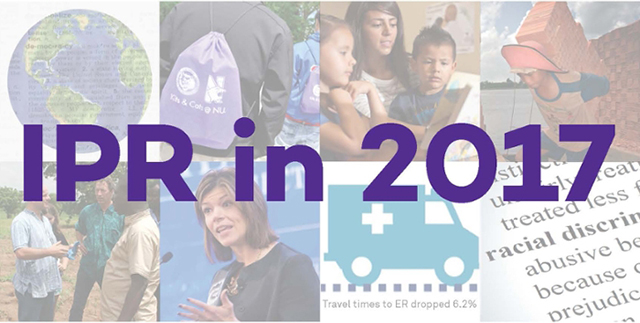
Last year saw a new administration settle into office, with policy debates spilling over from Capitol Hill and the White House into state legislatures, courts, town halls, and the streets. Many of IPR’s top-read articles from 2017 reflect such wider policy concerns—from research on boycotts to partisan polarization to the benefits of safety-net programs. They also reveal interesting details about who our IPR faculty experts are and why they choose to conduct research or pick up the mantle of leadership. Our readers’ top picks demonstrate their curiosity about far-reaching topics, such as the viability of democratic institutions or those Americans who live on just $2 a day.
Likewise, the most-read articles showcase how IPR faculty seek to address broad, intractable issues—improving K–12 education through an innovative research-practice partnership, for example, or the ways in which they collaborate and deploy research to attack poverty at home and abroad. Last, they reveal a hunger for the data behind the studies, with readers seeking out infographics that examined emergency room use under the Affordable Care Act or U.S. hiring discrimination over the past 25 years, among others.
“A year of historic policy and budget decisions reminds us that now, as ever before, we need evidence to better understand and craft timely solutions to these issues,” said IPR Director Diane Whitmore Schanzenbach. “We are so proud of our experts who fully embody our mission to produce rigorous scholarship on highly relevant topics and then communicate their findings widely.”
Read more about our top 20 articles from 2017 below.
Research | Faculty | Infographics | Lectures and Workshops
RESEARCH
Do Boycotts Work?
The typical boycott doesn’t have much impact on sales revenue, according to IPR associate Brayden King, a professor of management and organizations. Nevertheless, King finds that boycotts can still be effective by threatening a company’s reputation, especially by generating negative media coverage.
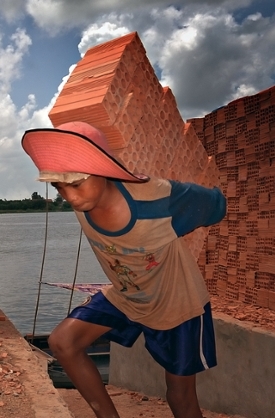
form of human
trafficking, Tabitha
Bonilla explained.
A Contemporary Understanding of Human Trafficking
For most, human trafficking is sex trafficking, including forced prostitution. However, the Victims of Trafficking and Violence Protection Act—the cornerstone of federal human trafficking legislation passed in 2000—also covers labor trafficking, including debt bondage, forced labor, and involuntary child labor. IPR research assistant professor Tabitha Bonilla discusses whether media and public opinion reflect this broader definition.
Combating Medical Students’ Racial Bias
Informal elements of medical training can shape the racial attitudes of future medical providers, according to research by psychologist and IPR associate Sylvia Perry.
“It’s important for medical schools to recognize that the formal processes, like diversity training, are not sufficient if the behavior that’s being modeled is counter to that,” Perry said.
Expanding the Evanston-Northwestern Education Partnership
A partnership between Evanston schools, their administrators, and Northwestern University researchers from IPR and the School of Education and Social Policy seeks to improve the lives of Evanston students through the implementation of practical research findings. The “PreK–12 Pathway Research and Data Initiative” is being spearheaded by IPR economists David Figlio, Jonathan Guryan, and Diane Whitmore Schanzenbach, with IPR developmental psychologist Lindsay Chase-Lansdale.
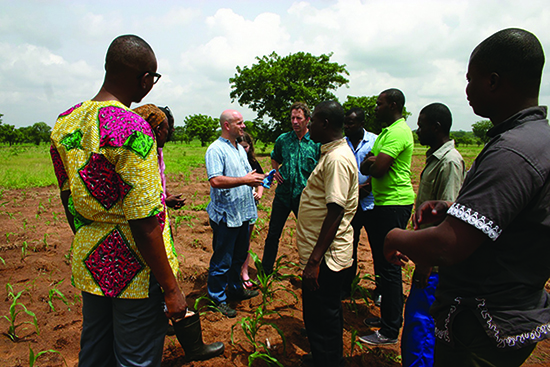
development economists Dean Karlan
and Christopher Udry.
Expanding Development Research at Northwestern
While the overall rate of global poverty has fallen to under 10 percent from 35 percent in 1990, the problem of deep and persistent poverty remains. Development economists and IPR associates Dean Karlan and Christopher Udry have founded the Global Poverty Research Lab, housed in the Buffett Institute for Global Studies. The lab will present new opportunities for interdisciplinary dialogue and collaboration across the University—including with IPR faculty already conducting development research—on ways to break the cycle of poverty.
Breaking the Cycle of Poverty
Pairing early childhood education for low-income children with career training for their parents in a single program has the potential to break the cycle of poverty, according to IPR researchers. Lindsay Chase-Lansdale, Teresa Eckrich Sommer, and Terri Sabol find that the CareerAdvance program leads to better Head Start attendance among children and higher employment for their parents.
FACULTY NEWS
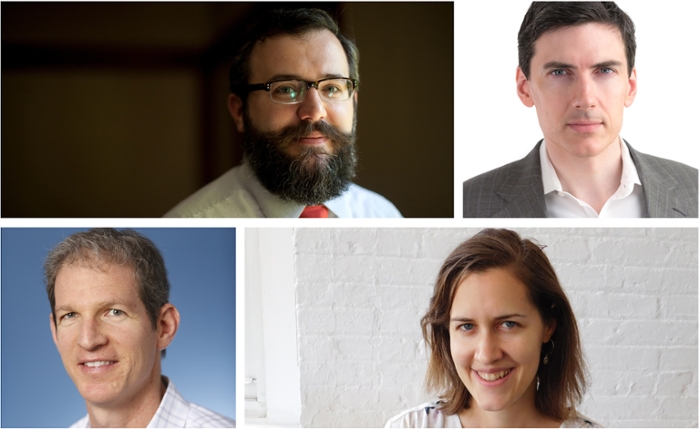
Bullock, Julia Behrman, and Ofer Malamud
New Faculty Set to Boost IPR in Key Research AreasLeading experts in education, politics, crime, and development joined IPR's faculty roster in fall. John Bullock, Ofer Malamud, Andrew Papachristos, and Julia Behrman enhance the Institute’s interdisciplinary research capacity and offer more opportunities for diverse collaboration on high-impact, policy-relevant research.
Schanzenbach Named Director of Institute for Policy Research
Diane Whitmore Schanzenbach took over as IPR director on September 1. From 2015–17, Schanzenbach was director of The Hamilton Project, a research group within the Washington, D.C.-based Brookings Institution, where she was a senior fellow in economic studies.
David Figlio Named Dean of Northwestern’s School of Education and Social Policy
David Figlio stepped down as IPR director to become dean of the School of Education and Social Policy on September 1. As IPR director since 2012, Figlio launched new collaborations with other institutes and schools across Northwestern and spearheaded collaborative ventures with partners, including the Evanston and Chicago public school districts.
Faculty Spotlight: Joe Feinglass
The "power of data to inform the public" is what research professor of medicine and IPR associate Joe Feinglass sees as defining his academic career. Feinglass began studying racial disparities in health access, treatment, and outcomes after obtaining his PhD in public policy.
Faculty Spotlight: Claudia Haase
Growing up in East Germany, "We had no freedom of speech, no freedom of the press, we lived behind a wall," recalled Claudia Haase, a developmental psychologist and IPR associate. "But there were some people who showed remarkable resilience in the face of this adversity." Today, Haase draws on that observation to study how different factors affect humans across their lives.

Jayachandran
Faculty Spotlight: Seema Jayachandran
IPR economist Seema Jayachandran set out to study engineering and physics, but two years into her PhD program in theoretical physics at Harvard, she realized it wasn't the right fit. Today, instead of studying theories on the mass of quarks or leptons, she studies gender differences in the mass of humanity—as well as other developmental issues with practical applications in countries such as India and Uganda.
Faculty Spotlight: Burton Weisbrod
From his early studies in chemical engineering, IPR economist Burton Weisbrod found the "blanks" between elements in the periodic table intriguing. This idea of blanks stuck with him when he switched over to studying economics in college, and he has spent his career filling in the blank between private enterprise and government with studies of a third sector—nonprofits.
INFOGRAPHICS
How Babies’ Environments Lead to Poor Health Later
A study by IPR anthropologist Thomas McDade and IPR colleagues breaks new ground in helping to understand how our bodies "remember" experiences in infancy and carry them forward to shape inflammation and health in adulthood.
The Affordable Care Act and Emergency Room Access
As Republicans work to repeal the Affordable Care Act (ACA), IPR faculty researchers Matthew Notowidigdo and Craig Garthwaite find that Medicaid expansion led to more Medicaid patients in the emergency room and lower travel times to the hospital than before states expanded the program.
Persistence of Racial Discrimination in U.S. Hiring
Despite some favorable racial trends over the past 25 years, IPR sociologist Lincoln Quillian finds no change in rates of discrimination against African Americans in 21 studies of hiring over the same period.
Income Segregation in French and U.S. Cities
Large U.S. cities are more socioeconomically segregated than French metropolises of the same size, according to research by IPR sociologist Lincoln Quillian and Hugues Lagrange of Sciences Po. They compared cities with more than 1 million inhabitants in France and the United States.
LECTURES AND WORKSHOPS
Living on Less than $2 a Day
At IPR's Winter 2017 Distinguished Public Policy Lecture, Johns Hopkins sociologist Kathryn Edin shared her research and the stories of individuals who live on less than $2 a day. How did these people end up in this kind of extreme poverty, how do they survive, and what role might policy play in alleviating their situation?
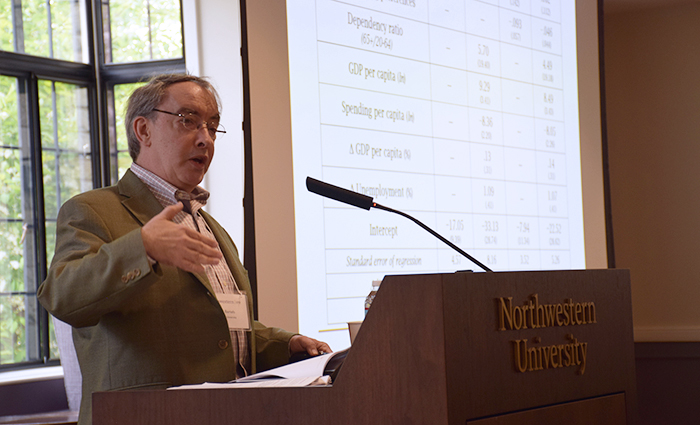
Dissecting Key Aspects of the Political Landscape
The 11th annual Chicago Area Political and Social Behavior Workshop (CAB) focused on key aspects shaping the current political landscape, "highlighting the reach of politics in topics such as wealth, geography, homes, and journalism," said James Druckman, IPR political scientist and associate director, in opening the May 5, 2017 workshop on Northwestern's Evanston Campus.
A Moment of ‘Democratic Imperative’?
When and why do governments become less authoritarian? Why have some countries moved from authoritarianism toward instability, while others have become more democratic? Are democracies in the United States and Western Europe headed for breakdown? At an April 2017 workshop led by IPR political scientist Rachel Beatty Riedl, an international group of scholars discussed how past cases of democratic change can inform the contemporary moment.
Published: January 26, 2018.


